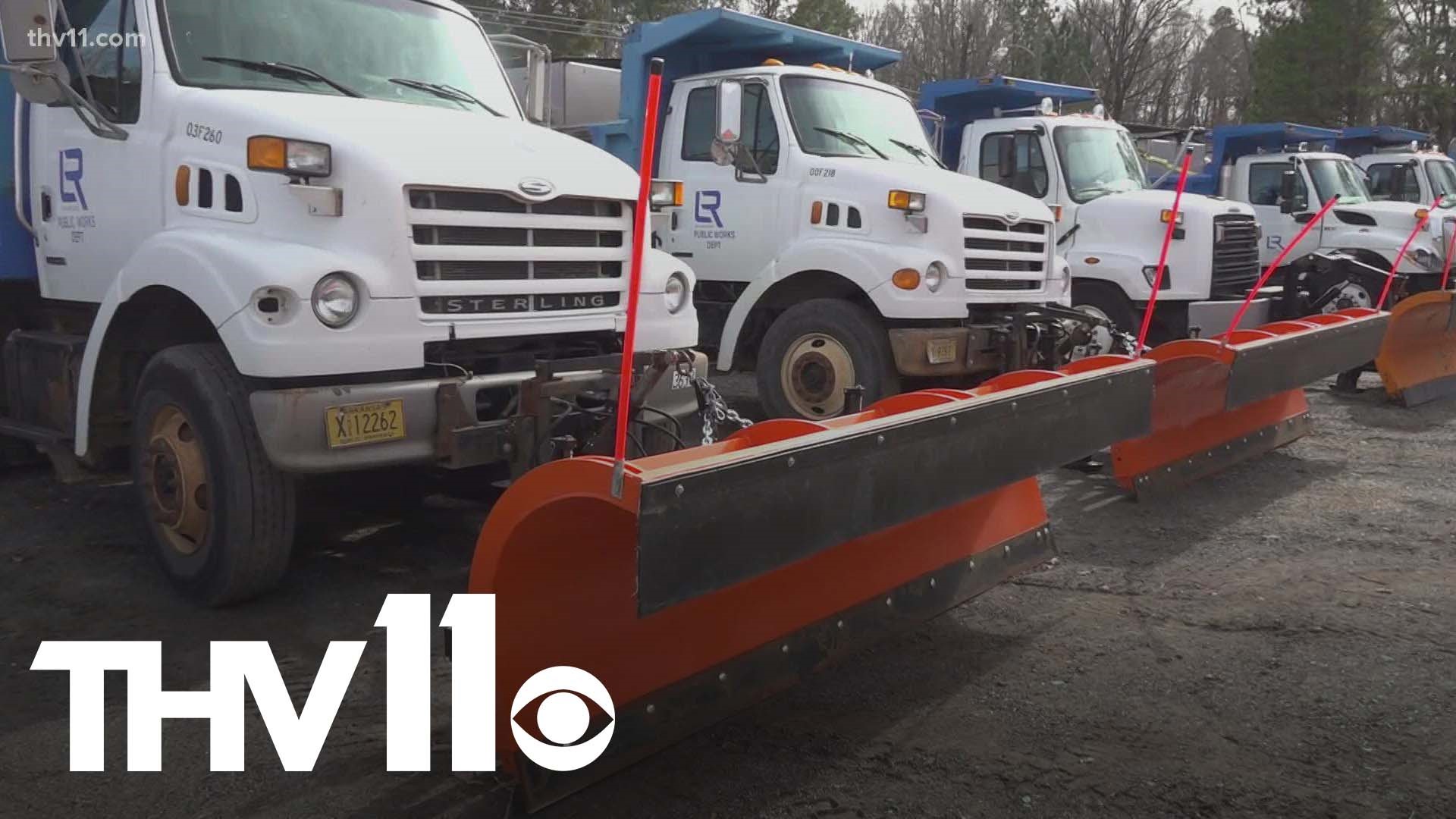LITTLE ROCK, Ark. — The Arkansas Department of Transportation (ARDOT) and the City of Little Rock Public Works Department got a head start on making sure they have everything they need in case of winter weather.
As the weather steadily approaches Arkansas, leaders with each department said they are well prepared to make sure the roadways are safe.
Of course when there is a possibility for winter weather, making sure the roads are safe is no last minute operation for Little Rock Public Works.
"Prep work starts with our crews about the middle of October," said Mike Jacobi, Operations Coordinator.
He said working well ahead of winter gives them time to make sure things are working properly.
"We'll go ahead and prep the equipment, load the equipment, schedule the crews, and be prepared to go," Jacobi said.
More than 100 of the workers will be out and about in the city starting Saturday night to pre-treat roads.
"They will work from six o'clock in the evening until six o'clock in the morning. And then we'll have our day shift on standby," said Jacobi.
ARDOT spokesperson Dave Parker said hundreds of their crewman have been preparing since Wednesday to service all of the state.
"Make sure that we had enough, which we do, everything has been topped off and ready to go," said Parker.
Parker added that ARDOT workers are being cautious about pre-treating some of the highways because they don't want any materials to go to waste.
"The heavier rainfall that's expected to come in tonight into Saturday morning, it would simply wash away all that salt brine," Parker said.
ARDOT will continue to treat roads, bridges and overpasses once the rain tapers off.
They aren't expecting many traffic issues since this weather system will pass overnight.
Despite that, Parker doesn't want drivers to let their guard down while driving.
"It only takes that one small patch of ice or snow to cause a big problem. [So] just take it a little slower, prepare a little bit better," Parker said.
Jacobi wants to remind people who will be traveling to watch out for his crews and give a little extra space on the roadways if you see snowplows.
"If you get behind one, it'll be a lot easier traveling than it is in front of them," Jacobi said.
He adds that their main focus will be clearing streets that are frequently traveled.
Once those are treated and cleared, then they will begin to work on secondary roads.

